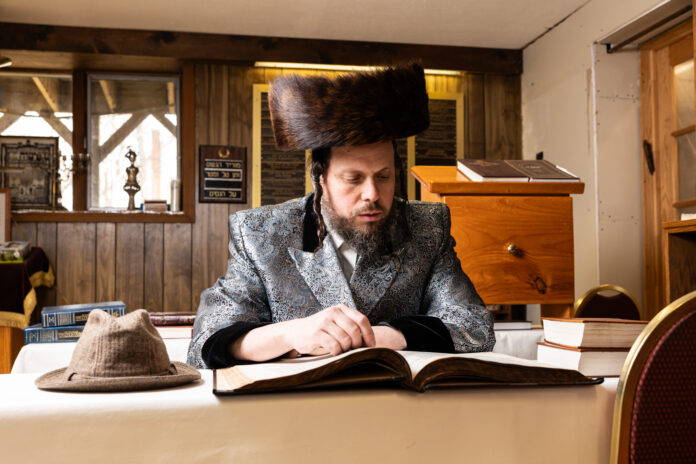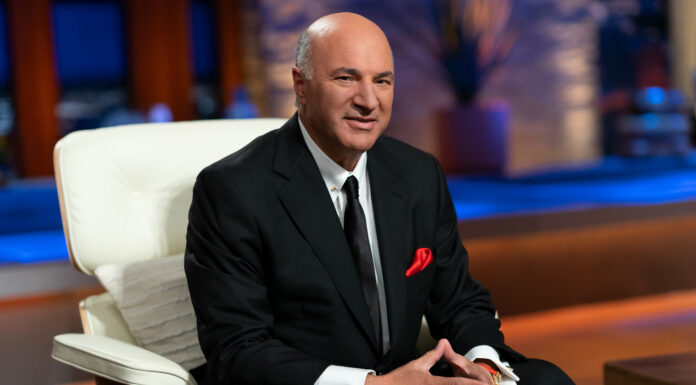How are you doing today?
I’m all right. I’m having a very long day today because it’s Ramadan and I don’t have anyone else helping me tonight. I’d also like to go visit an inmate who is dying in the hospital, which will also give me an opportunity to go to the mikvah, because the mikvah in Scranton is open all day.
How does Ramadan affect a Jewish chaplain?
I am the chaplaincy program director at the state prison. I’m the first Jewish chaplain to hold this position in Pennsylvania, but I’m not the only one. There’s another yungerman in Squirrel Hill who started as a contract chaplain—which means that he was only serving the Jewish community for the most part—but then he went to a full-time position and eventually became a supervisor. I guess I’m a trailblazer that way.
That puts you in an interesting position, because you have to provide services that may contradict your own religion. How do you get around that?
Generally, I just supervise the team and don’t actually participate in anything, and I don’t think it’s an issue of “lifnei iveir” because I’m not telling people that this is what they should do. I’m just giving them an opportunity to choose how they want to exercise their religious freedom. We have an imam who comes here on Fridays and Saturdays, and we have other clergy coming on other days. We used to have another rabbi who was here for over 30 years. I didn’t want to get rid of him, but he felt that it wasn’t really necessary for him to come from Scranton for three hours a week now that I was here.
Where are you located?
I live in White Lake, New York, which is about ten minutes from Monticello. I daven in Rabbi Fishbane’s shul. He’s a very chashuve Yid. He was born in Chicago. His father, who was a Chernobyler chasid, passed away when he was very young. His mother had a hachnasas orchim place, and Rav Elchonon Wasserman stayed in their house, as did the Rebbe Rayatz of Lubavitch and the Lomzher rosh yeshivah. He grew up seeing many gedolei Yisrael. His father was moser nefesh to try to start some sort of Yiddishe chinuch in Chicago, because everyone was sending their kids to public school at the time. People felt that trying to start a cheder didn’t have a place in America in the 1920s and ’30s. His mother sent him and his brothers to Torah Vodaas, which was tremendous mesiras nefesh for an almanah, and she sent her daughters to learn in Bais Yaakov under Rebbetzin Kaplan. Rabbi Fishbane has been in White Lake for about 50 years, and before that he was a rav in Hurleyville. He learned by Rav Gustman.
Where are you from originally?
I grew up in Laurel Park, Long Island. My mother’s parents were frum, but my father was Catholic. My mother grew up in a shomer Shabbos home and her father went to minyan three times a day. He was born in America, but he grew up speaking only Hungarian. His parents came from Satmar, but as far as I know they weren’t chasidish. They were einiklach of the first Tchenger Rav, Rav Moshe Spitz, who was an eidim of the Kruler Rav, Rav Moshe Aryeh Ostreicher, whose father, Rav Meir Leib, was the first Kruler Rav. Rav Moshe Spitz was an einikel of the Chavos Yair.
I guess that’s why your title is “Av Beis Din D’kehillah Kedoshah Chavos Yair D’Koblentz.”
All of the different religions have names for their communities in the prison system, so I decided to come up with something as well. I named it after the Chavos Yair since I’m his einikel, and Koblentz sounds nicer than Worms. It also kind of mirrors my own life because I was a rav in Richmond, Virginia, for a few years, and my zeide, the Chavos Yair, had a similar story in Koblentz. He was only there for a few years because they didn’t renew his contract. Then he went to Worms after his father had passed away—his father and zeide had been rabbanim there—but the kehillah didn’t hire him. He was almost like a kollel yungerman even though he was one of the gedolei hador, as we saw from his shailos uteshuvos.
Personally, I feel very tzugebunden to his sefer that was only published around the same time I was born, Mekor Chaim. It’s haflei vafele. You can see from the way he writes that he was a flam fayer. In Chavos Yair, he includes the zemiros that he, his father and his grandfather wrote, so I sing them on Shabbos. And on Chanukah, which is his yahrtzeit, I sing the long zemer that his zeide wrote for Chanukah. He also wrote extra paragraphs for Maoz Tzur, which I like to sing. I get extra hisorerus from that.
I’m also very into saying the Shir Hayichud every day, which was the minhag in Worms and other places in Ashkenaz. That’s one of the things that helps me because I’m surrounded by… We have students who come here to visit from a Russian Orthodox seminary, and one of them asked me, “How do you keep your Judaism in such a non-Jewish environment?” Without blinking I replied, “Because I say the Shir Hayichud every day.” It gives me a lot of chizzuk.
To read more, subscribe to Ami





















